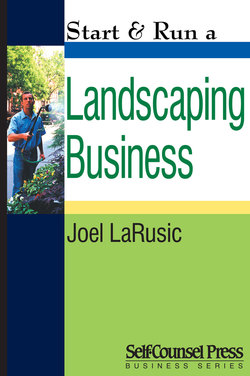Читать книгу Start & Run a Landscaping Business - Joel LaRusic - Страница 51
На сайте Литреса книга снята с продажи.
5. Hand Tools 5.1 Fertilizer Spreaders
ОглавлениеFertilizer and lime/sulfur applications are a good way to generate extra revenue and offer your customers full lawn care service.
There are essentially two types of spreaders: the drop spreader and the broadcast spreader (also known as a rotary spreader). The drop spreader offers maximum control of material distribution, but it takes much longer to spread. Unless you are looking after golf courses or higher-end lawns, the drop spreader is more than you need.
Broadcast spreaders come in a variety of sizes and qualities, and you will find that you get what you pay for. In the $100 range you will find good-quality spreaders, but don’t expect more than a year or two of service out of them. In the $300 range you get a product that will last a number of years. You can also buy broadcast spreaders that will attach to your rider mower.
Look for these signs of quality in the push models:
Pneumatic tires (as opposed to plastic): The bigger the better for use on the roughest terrain.
Adjustable settings: You want to control how much fertilizer comes out of the spreader. The better models allow finely tuned calibration.
Side baffle: Controlling where your fertilizer goes is the biggest challenge with broadcast spreaders. A side baffle allows you to cruise along a sidewalk and have the material distributed only on the grass side.
Adjustable throwing ports: This option is useful to adjust the spread pattern based on the type of material you are spreading and the size of the area.
Hopper: The hopper holds the material you are spreading. A large hopper has obvious benefits. Plastic breaks down and becomes weaker in the sun, but fiberglass does not. Stainless steel is another good option.
Rain cover: An indispensable option for rainy areas.
